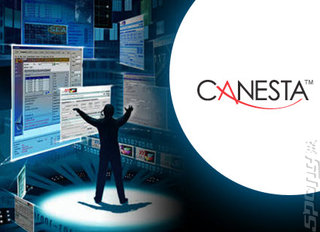Competition For Microsoft's Natal Emerges
Canesta's motion-detection chip could be implemented in many different products.

Looks like Microsoft's Natal controller will have some competition. A start-up technology company called Canesta is developing a chip that can also read your movement in 3D space and translate it to traditional commands. Unlike Microsoft's venture, which is likely to be solely aimed at Microsoft product (Xbox 360 and 'business apps'), Canesta intends to produce its chip for various products such as TVs and PC webcams on top of the potential for PC games.
The company announced that it raised $16 million dollars from new investment backers, including the largest laptop manufacturer in the world, Quanta Computer. Canesta CEO Jim Spare said to Venturebeat that he hopes the news will “inspire big companies to move forward with adopting the technology in a variety of markets”.
Hitachi has already told of how it plans to use Canesta's technology in their products, which might make the company's motion-detection technology much more massmarket than Microsoft and 3DV Systems' which Spare says relies on gallium arsenide chips that are more expensive to make compared to Canesta's own solution.
With the new investment, the company will move to full-scale production of its chips, with an aim to be implemented in a variety of systems from Autumn 2010. If Microsoft are looking to use Natal for entertainment uses other than Xbox gaming, it looks like it could have a fight on its hands.
The company announced that it raised $16 million dollars from new investment backers, including the largest laptop manufacturer in the world, Quanta Computer. Canesta CEO Jim Spare said to Venturebeat that he hopes the news will “inspire big companies to move forward with adopting the technology in a variety of markets”.
Hitachi has already told of how it plans to use Canesta's technology in their products, which might make the company's motion-detection technology much more massmarket than Microsoft and 3DV Systems' which Spare says relies on gallium arsenide chips that are more expensive to make compared to Canesta's own solution.
With the new investment, the company will move to full-scale production of its chips, with an aim to be implemented in a variety of systems from Autumn 2010. If Microsoft are looking to use Natal for entertainment uses other than Xbox gaming, it looks like it could have a fight on its hands.
Companies:
Microsoft
Read More Like This
Comments
can only be good, PC`s with touch screens and gesture based input along with old pyshical input devices would = great ways to use your software be that business, home or gaming based.
Nice to see a strong rival to Natal technology. Competition of Microsoft and Canesta will boost quality of both systems. Although Nintendo is sceptical about these camera-based sensors:
http://prnatal.com/blog/?p=215
http://prnatal.com/blog/?p=215
